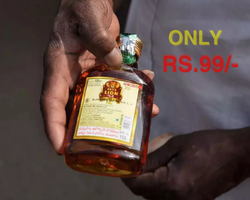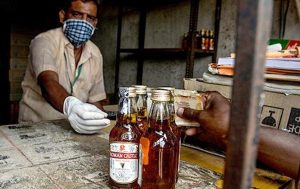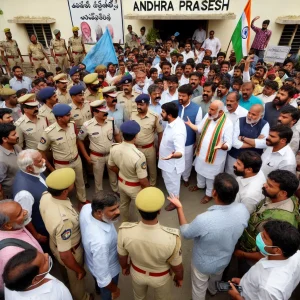
A Flawed Strategy That Could Worsen Illegal Sales, Andhra Pradesh’s newly introduced liquor policy, aimed at reducing illegal alcohol sales and increasing state revenue, has sparked concerns over its potential impact on retailers and market competition. Effective from October 16, 2024, the policy introduces several key changes, but questions are being raised about its feasibility and long-term success.

Key Provisions of the Policy
Under the new policy, the state has decided to open up the liquor market to private retailers, a significant departure from its previous government-controlled approach. Some of the main features of the policy include:
Privatization of liquor sales: A total of 3,736 liquor shops will be operated by private retailers, with each applicant required to pay a ₹2 lakh non-refundable fee per shop. There is no limit on the number of licenses an individual can obtain.
Low-cost liquor offerings: In a bid to curb illegal sales and smuggling, the policy introduces low-priced liquor, with some products starting as low as ₹99.
Profit margins and taxes: Retailers will earn a 20% margin on the issue price of liquor. However, they will also face an annual retail excise tax (RET) ranging from ₹50 lakh for smaller towns to ₹85 lakh in larger cities, depending on the population size.
Challenges for Retailers
While the policy aims to reduce illegal liquor trade and increase revenue, it has raised concerns among stakeholders. One of the key issues is whether the policy is financially sustainable for retailers. The introduction of low-cost liquor, designed to undercut the black market, has left retailers worried about profitability due to high taxes and slim margins.
“The idea of selling liquor at ₹99 may sound good on paper, but after accounting for the heavy excise taxes, many retailers may find it hard to stay afloat,” – industry expert.
The uneven response to the initial bidding process further reflects these concerns. While districts like Vizianagaram saw an overwhelming number of applications, regions such as Tirupati, Nellore, and Visakhapatnam witnessed little to no interest from potential license holders. This has led to concerns about the viability of operating liquor shops in certain areas, especially given the financial burdens imposed by the new policy.
Monopolization Fears
Another significant concern is the potential for monopolization. Reports suggest that in some regions, large players may be discouraging smaller businesses from participating in the bidding process, leading to fears that the market could become dominated by a few entities.
“Monopolies could distort the market, reduce competition, and ultimately harm consumers by limiting their choices,” – Business analyst.
Government’s Response and Future Implications
The government has defended the policy, asserting that it will increase revenue and reduce illegal sales. Officials have emphasized the importance of transparency and strict quality control measures, but many remain skeptical about how the policy will play out in practice.
Questions are also being raised about whether the state can effectively balance affordable pricing, ensure fair competition, and support retailers’ profitability without fostering monopolies or encouraging substandard practices. If retailers struggle to make profits, some may be forced to shut down, or worse, sell lower-quality liquor, which could undermine the policy’s goals.




